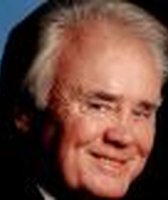Get PolitiFact in your inbox.
SUMMARY: With the economy dominating the presidential campaign, Hillary Clinton touts her long-standing position on the foreclosure crisis. We find she was an early voice on the issue — but so was Obama.
As the Indiana primary approaches and the economy appears to be in recession, Hillary Clinton is highlighting her position on the foreclosure crisis and arguing that she spoke up early on the issue.
In new television ad, she contrasts her position on foreclosures with Barack Obama.
"When the housing crisis broke, Hillary Clinton called for action — a freeze on foreclosures. Barack Obama said no," the ad states.
We looked at the statement and found it to be True. She leaves out Obama's reasons for being against the freeze — he worries the measure could do more harm than good ( see our full item on the statement here ). But Clinton is pointing out a legitimate and distinctive policy difference between the two in a race where the two candidates agree on many issues.
Aside from the policy difference, Clinton also argues that she has been an early advocate for government action on the foreclosure crisis.
She has emphasized her early comments to show working-class families that she is in touch with their problems. We wondered if she was accurately describing the timing.
Indeed, Clinton gave a speech on March 15, 2007 to the National Community Reinvestment Coalition in which she said "the alarm bell about the subprime home market has largely gone unnoticed by the (Bush) administration because they keep arguing we have to give trillions of dollars of tax cuts for the wealthy."
She called for more borrowing options for lower income, minority and first-time homebuyers, more safeguards against predatory lending practices and reforms to reduce foreclosures.
"The subprime problems are now creating massive issues on Wall Street," she said. "It is a serious problem affecting our housing market and millions of hard working families."
Her campaign also sent us a letter she wrote in July 2006 to the chairman and ranking Democrat on a Senate appropriations subcommittee asking them to include provisions to expand the Federal Housing Administration, which she said would help provide "a real alternative to the sub-prime and predatory lending market." Her campaign said it shows she was involved in the issue early.
Sen. Barack Obama first got involved with home lending problems in February 2006 when he introduced a bill known as the STOP Fraud Act. That bill, prompted by a series in the Chicago Tribune, dealt primarily with mortgage fraud, but when he introduced the bill he noted that it "also protects the legal rights of borrowers with risky, subprime loans. The greatest growth in the mortgage lending market is in subprime loans and some have estimated that more than 2 million homeowners with subprime mortgages are at risk of losing their homes."
His bill did not pass.
(We should point out that in a Feb. 5, 2008 CNN interview, Clinton said she was "the only candidate left in this race on either side who has been talking about the mortgage crisis for nearly a year," which was not true. Her more recent comments don't make comparisons with her rivals and we're addressing the newer remarks.)
We're not going to declare who spoke up first because the crisis evolved over many months. The evidence shows both Obama and Clinton were talking about various aspects of the issue as early as 2006, before it had ripened into a crisis. But we will rule on Clinton's claim that she spoke up in March 2007. She did and we find her statement True.















































